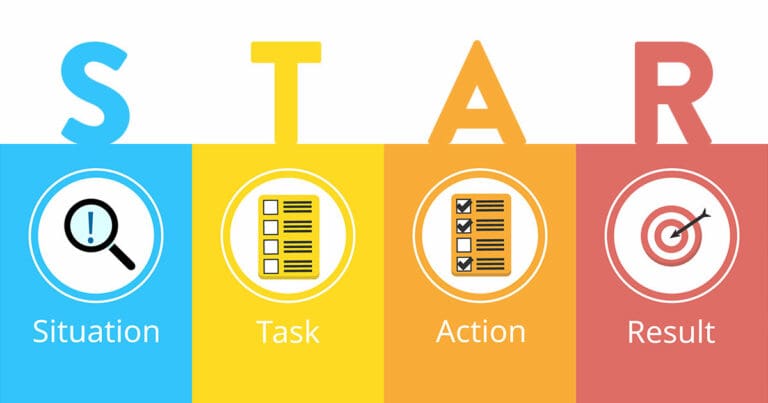Understanding GenAI and Maximizing Its Potential in Business

The emergence of GenAI has revolutionized the way businesses operate, allowing them to automate processes and maximize their potential.
By understanding GenAI and its impact on the business landscape, companies can leverage this powerful technology to create new opportunities while minimizing costs and risks.
To take advantage of this powerful technology within your organization, take some time to truly understand what GenAI is, how it’s helping businesses, and the roles required to get the most out of GenAI.
What is GenAI?
GenAI, or Generative Artificial Intelligence, is a subfield of AI that focuses on generating new content. It encompasses a range of models including text, images, audio, and even video.
Where many popular AI applications, such as classification algorithms, focus on understanding and interpreting data, GenAI’s strength lies in its capacity to create content that is novel, yet remains coherent and contextually relevant.
How are businesses leveraging GenAI?
Businesses are leveraging GenAI in a number of useful ways including product development and design, integrating GenAI into business operations, and personalized customer experiences.
- Product development and design
- Content creation and marketing
- Predictive analytics and decision-making
- Integrating GenAI into business operations
- Enhanced creativity and innovation
- Improved efficiency and reduced costs
- Personalized customer experiences
GenAI for product development and design
GenAI technology can be used to create visually appealing designs for products and services.
By assessing customer preferences, AI can generate new ideas that are more likely to resonate with customers.
This could lead to the development of unique and innovative products that meet customer needs in a better way.
GenAI for content creation and marketing
GenAI can be leveraged to create engaging content for marketing campaigns, such as videos, blog posts, and emails.
AI can be used to analyze customer data and generate targeted ads that are tailored to each user’s individual needs.
This can result in higher conversion rates and increased ROI.
GenAI for predictive analytics and decision-making
GenAI has the potential to revolutionize the way businesses make decisions.
It can be used to analyze large amounts of data and identify patterns that could help businesses make more informed decisions.
AI can also provide predictions about the future, which can be leveraged for strategic planning.
Benefits of integrating GenAI into business operations
Integrating GenAI technology into your business operations will bring many benefits, including increased efficiency, reduced costs, improved customer experiences, and enhanced creativity and innovation.
By leveraging the power of GenAI, businesses will be able to stay ahead of their competition and remain competitive in today’s rapidly changing marketplace.
GenAI for enhanced creativity and innovation
GenAI can help businesses create innovative products and services that are tailored to the specific needs of their customers.
This could lead to increased customer satisfaction, higher loyalty levels, and improved profitability.
GenAI for improved efficiency and reduced costs
By automating processes with GenAI technology, businesses can eliminate manual tasks that require time and money, resulting in increased efficiency and decreased costs.
This could also lead to improved customer service, as more resources can be devoted to understanding customer needs and providing personalized experiences.
Gen AI for personalized customer experiences
GenAI can help businesses create tailored customer experiences that are based on their individual preferences.
By leveraging AI-driven insights, businesses can provide customers with products and services that are more likely to resonate with them.
6 AI jobs to hire for GenAI implementation
While there are dozens of AI jobs to hire for GenAI implementation and success, a few to begin building your team include project managers, data scientists and data engineers, and an AI ethics officer.
- Project Manager
- Data Scientist/Engineer
- GenAI Specialist
- Business Analyst
- AI Ethics Officer
- Training and Development Personnel
1. Project manager for GenAI implementation
The role of a project manager for GenAI implementation is vital to ensure that the project runs smoothly and is completed on time and within budget.
The project manager must be able to identify goals, manage resources, coordinate with stakeholders, and plan tasks accordingly.
They should also have the ability to communicate clearly and effectively in order to bring all teams together towards successful implementation.
2. Data scientist/engineer for GenAI implementation
The role of a data scientist or engineer in developing a GenAI solution is to identify, analyze, and interpret patterns from data sets in order to create models that can generate accurate predictions and insights.
They should possess strong programming skills and be able to work with large datasets.
Additionally, the data scientist or engineer must have a good understanding of the business in order to create models that are tailored to the specific needs of the organization.
3. GenAI specialist for GenAI implementation
The role of a GenAI specialist is to ensure that AI solutions are designed, implemented, and managed successfully.
They should have an in-depth knowledge of AI technologies and an understanding of the various applications of GenAI.
The specialist should also possess strong problem-solving and communication skills in order to work with stakeholders from all areas of the business.
4. Business analyst for GenAI implementation
The role of a business analyst is to identify and analyze customer data, industry trends, and other sources of information in order to develop strategies for using GenAI to improve customer experiences and increase profitability.
They should possess strong analytical skills, be able to interpret complex data sets and have a good understanding of the business model in order to design effective AI solutions.
5. Ethics officer for GenAI implementation
The role of an ethics officer is critical for ensuring that any AI-driven decisions are made within ethical boundaries.
They should be knowledgeable about the ethical implications of AI and have the ability to advise senior executives on potential risks and issues related to GenAI projects.
The ethics officer should also stay up-to-date with changes in regulations concerning GenAI use so that the organization remains compliant.
6. Training and development personnel for GenAI implementation
The role of training and development personnel is to ensure that employees have the skills and knowledge necessary to use GenAI technology effectively in their roles.
They should be able to create training materials, provide support for users, and design programs that promote continued learning.
Furthermore, they must stay up-to-date with developments in AI technologies so that the organization can take advantage of new opportunities as they
Challenges & considerations
There are a number of serious challenges and considerations that need to be taken into account when implementing GenAI in business including data quality & relevance, ethical considerations, potential AI bias, and the need for continuous learning and adaptation.
The importance of data quality & relevance
The quality and relevance of the data are paramount for GenAI projects to be successful.
Poorly structured or incomplete datasets can lead to inaccurate results, resulting in failed implementations that waste resources and time.
It is important to ensure that all data points are accurate, relevant, and up-to-date in order for the AI models to generate reliable insights.
Ethical considerations
The use of GenAI technology raises a number of ethical considerations, such as privacy, security, and fairness.
Organizations must be aware of the potential risks associated with AI projects in order to prevent any harm to individuals or organizations such as the potential for GenAI to generate misleading or harmful content such as deepfakes.
It is also important to ensure that all projects are compliant with relevant regulations and industry standards.
The potential for bias in GenAI outputs
AI systems are only as good as the data that is used to train them, and datasets can contain inherent biases.
Organizations must be aware of this potential for bias in their AI outputs and take measures to reduce it.
While strategies such as using multiple datasets or implementing fairness algorithms can be helpful, addressing bias in AI is a complex challenge that may require a combination of strategies.
The need for continuous learning & adaptation
AI technology is constantly evolving, and organizations must stay up-to-date with the latest developments in order to maximize the potential of GenAI.
This requires continuous learning and adaptation, as well as an understanding of how AI can be used to solve specific problems.
Using GenAI in business
While GenAI has the potential to dramatically improve customer experiences and increase profitability, the overall impact of GenAI on a business depends on various factors including how the technology is applied, the success of the implementation, and each organization’s existing processes.
Implementing GenAI is a complex process that requires teams of specialized personnel and careful consideration of ethical and technical issues.
Companies should be aware of the challenges that come with GenAI implementation but also recognize the opportunity to capitalize on new technologies for greater success.
Looking to hire top-tier Tech, Digital Marketing, or Creative Talent? We can help.
Every year, Mondo helps to fill over 2,000 open positions nationwide.
More articles about hiring and industry trends:
- The Future of Recruiting: Top 10 Challenges in Tech and Digital Hiring
- Top Paid Business Applications Development Jobs Plus Salaries
- 8 Unexpected Legacy Industries Going Digital
- Boomers, Millennials & Zoomers: From Tradition to Transition in the Job Market
- How To Conquer the Top 10 Most Common Recruitment Challenges
- The Rise of Working Moms & the Role of Remote Work
- How to Recruit Top Data Scientists in a Competitive Job Market
- Lessons From Unicorn Companies: Hiring Strategies for Rapid Growth
- 8 Myths About Hiring Gig Workers Every Employer Should Know
- The Costly Consequences of Project Delays and How To Prevent Them
- Big Tech Job Cuts Don’t Mean Demand for Tech Professionals Is Over



